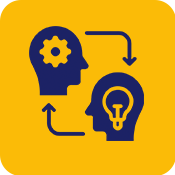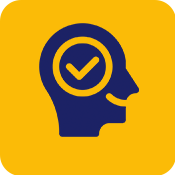
By: Paola Marie Taveras Ruffen
Clinical Psychologist with a focus on well-being in adolescents, leadership and emotional management
The learning process not only depends on the quality of information that the student receives, but also takes into consideration the factors that influence the comprehensive educational cognitive process. Regarding learning, the emotional factor tends to be ignored, later becoming a trigger that negatively impacts the student's academic formation .
Both educators and parents must work together with the aim of prioritizing emotions and feelings as a whole. Emotions are imperative and natural within all human beings. So, why are they treated as two separate terms?
Among the advantages of working hand in hand in emotional education, it has been identified that the management and control of emotions influence the learning process and daily performance. It is constantly observed that the poorer the management of frustration, anger, and stress, the more it affects the performance that one can have in different areas of life.
Among emotions, self-confidence, enthusiasm, curiosity, optimism, hopefulness, and satisfaction provide tools that can be used for better academic performance because they favor learning. Meanwhile, stress, anxiety, worry, and emotions related to jealousy, betrayal, disappointment, insecurity, and rejection are a disadvantage when it comes to being able to react assertively to daily life events.
Through understanding emotions, students learn how to manage what they feel in order to give them a sense of understanding where that feeling originates from, enabling them to handle attitudes in class towards their tutors and classmates.
On the other hand, a positive and empathetic environment in the classroom is significant. If the school environment is hostile, critical, and attacking, there are more chances that the student's performance and learning will be less favored.
A teacher with an empathetic attitude is a likeness of how the students under their care will be. It is of utmost importance to provide strategies and techniques for problem-solving in personal, social, and family life, not only in academic life, so that the student receives quality education. At Bibliotech, we not only focus on teaching the required subjects to the student but also promote their personal growth and human developement .


Activity to promote the work of executive functions and cognitive skills (attention and concentration):
Assemble a puzzle with time to try to complete it as quickly as possible. The puzzle must be assembled from memory.
First, the puzzle must already be assembled, which will be visualized for 15 seconds. Then, the pieces will be moved in order for it to assembled again. In this activity, it is necessary to time it so that we can identify how long it takes for the kid to complete it. This activity will work on visualization, memory, and motor skills.
To achieve a second level, the same dynamics can be performed by also adding visual or auditory distractions: While doing the puzzle, one can listen to music, watch a program, perform mathematical operations, or be accompanied by another person who will be moving the pieces. Doing two activities at the same time will help with guided, sustained attention, and detail. Likewise, the attention span of the students will influence their ability to maintain concentration on the tasks assigned.

Activity to promote the work of executive functions and cognitive skills (processing speed, divided attention, sustained and selective attention):
This activity will be done in pairs. For this game, cardboard letters, a set of letters, or printed letters will be needed.
With a partner, the letters will be randomly divided. One of them will start by choosing a letter. After a letter is chosen, the other person must choose another, and so on. Both people must make a word together. The game should be as fast as possible. Lik.ewise, this activity should be timed. This activity will influence the student's ability to perform school and homework tasks more quickly and effectively.
Example:
B–I–B–L–I–O–T–E–C–H
E–M–O–C–I–O–N–E–S

Powered by Solucionweb.com